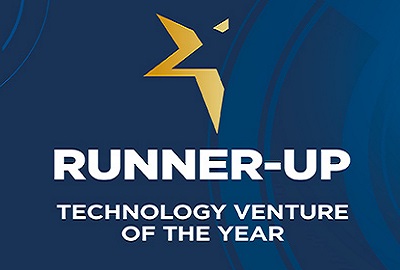Tech pioneers: Kennedys’ 11-year journey into the human mind |
Contacts: Richard West, Karim Derrick, Mike Gilpin and Tom Gummer
This article is published with the permission of The Lawyer. The original article, written by Cristiano Dalla Bona, was published on 15 December 2020.
The legal technology market has a natural fascination for the new. Words like “launches”, “debuts”, “unveils” are the narrative that propels a growing niche of alternative offerings that are increasingly an adjunct to most big firms.
While some of these units are technically ‘new’, often powered through hires or acquisitions, others are the result of years of development work hidden from the spotlight. They are less an explosion than the gradual assembling of previously disparate initiatives.
This is the case for Kennedys IQ, the technology venture launched right before the pandemic by the insurance specialists to focus exclusively on product developments. Trading as a limited company fully owned by Kennedys’ LLP, its principal aim is to help clients deal with internal legal matters and insurance claims without the need to involve external lawyers.
Even if it was launched as a new business only at the end of February, the offering at the heart of Kennedys IQ has been 11 years in the making.
The Toolkit
Once upon a time, Richard West, who heads Kennedys’ liability division, was assisting an insurance client struggling with a tsunami of litigation. To help with the problems they were facing, West embarked on an internal effort that resulted in the creation of Klaim, the first product that, years later, would become part of the IQ offering. Klaim, which benefitted from the buy-in of senior partner Nick Thomas, was originally an online workflow system that encapsulated the knowledge of hundreds of lawyers in a bid to help clients deal with the early phases of the litigation process on their own, by using templates and notes that guided them through the litigation process.
The original Klaim was focused on a narrow part of the legal process – its beginning – and was specifically used in the automotive context. An internal team had coded the main steps followed by lawyers during the process, breaking down their know-how step by step to guide the user.
Klaim helped clients understand what to do, when and the core aspects of filing a defence. “It was based on the notion that the system had to hold the hand of the handlers and augment them with legal expertise,” recalls Mike Gilpin, commercial director of the new unit and previously IT head at the firm. The tool was developed and refined until 2013, with the development of broader processes across other stages of litigation.
Kennedys then decided to beef up its technical capabilities by setting up a research and development team led by Karim Derrick, who joined the firm in 2016, alongside a data insights function. Over the years, the firm challenged partners to come up with ideas to better address client problems.
To encourage lawyers to make that effort, in 2017 the team set up the Ideas Lab, a crowdsourcing platform to gather ideas from lawyers and staff. The best ones were put forward for a prototype after an assessment conducted by research and development team members.
An innovation group was set up under West’s watch to coordinate all the firm’s NewLaw efforts; collaborating with the corporate affairs and client reporting teams, it ended up involving almost 40 people – including solicitor Tom Gummer, who collaborated from Mexico by taking on a new innovation manager role. Around the same time, Kennedys purchased a prototype development team from a cognitive computing services business in Kerala, India, which would speed up the development of ideas gathered from the Lab. An example of the output of that initiative was @scene, a risk management app for legal departments.
In 2018, the firm doubled down on investments in data science, recruiting two data scientists. The first, Dr Xi Liu, has a PD in applied statistics and another in computer science with business. She joined as part of the Innovate UK Knowledge Transfer Partnership with the University of Manchester, which focused on developing fraudprevention software. The second, Dr Harvey Maddocks, has a PhD in particle physics; he works specifically on data analysis and machine learning. At Kennedys, they worked on predicting the outcome of claims for clients by identifying trends from the work of previous years.
The resulting concepts, boiled down from a total of 100 ideas, were the basis of the Kennedys Toolkit, a suite of products developed as the lawyers worked with clients and learned about opportunities to apply legal tech, with an increasing focus on data capture and analytics. The toolkit was the basis for what, just two years later, would become IQ.
The IQ of it
The firm’s innovation efforts included a number of separate strands, and the toolkit was no exception. Its tools were developed separately and couldn’t interact with each other. At the start of 2019, the innovation group started forming plans around bringing everything together into a single entity. Formal conversations with the leadership team began. “We communicated a lot internally, but to be fair it was not a difficult journey,” says Gilpin.
The partnership was enthusiastic, and it made sense to capitalise on product work developed over time. It could bring a new dimension to their relationship with clients. “It was a natural step, and each stage of the development made complete sense to the business,” says Derrick of the decision of bringing the tools together in a single platform.
Development work on the IQ platform began. By then, different parts of the business were exploring the application of technology to different parts of the claim process, but each item of the Toolkit had been developed discreetly. They had validated each proposition with clients and the whole offering had gained momentum. “At that point we said: how do we take all those products so that we can scale their functionalities?”, Derrick recalls.
During the creation of IQ, which was coded entirely inhouse and without relying on external vendors, the innovation team realised the benefits that an overall platform could bring. From a technical perspective, it obviated any repetition or overlapping in the functionalities of each tool, engaging them in a virtuous cycle. For Kennedys, that digital environment also provided a single place to maintain lists of users and control the authentication of new ones.
“Without multiple products, we did not need different workflow engines; everything was done once.”
Karim Derrick, Products and Innovation Director
Crucially, combining the tools boosted the power of the machine learning component, as it merged all the data analytics capabilities and the insights of each tool into a coherent process. Once IQ was ready, the business was set for launch.
The IQ offering
Kennedys IQ was launched just before the world changed. Initially, the team was worried about the impact it could have. It worked to ensure a safe transition to remote working, with a number of virtual presentations replacing the frequent travel across the firm’s network. As clients were impacted by the pandemic disruption, however, they became more curious about products. They were facing limited resources. “They were driven by the ability to achieve cost savings and reduce their dependency on lawyers,” Gilpin recalls.
Lyndsey Forbes, head of marketing for the business, opted to change the names of products to make them clearer based on their function. “It was more than a renaming; it had to change because it had advanced significantly and become more meaningful,” Gilpin says. The main offering of Kennedys IQ revolves around six tools: Incident Manager, which helps handling incidents and resulting claims; Portal Manager, a dashboard that provides an overview of claim trends; Fraud Detector, which spots frauds and alerts clients on suspicious claims; Defence Lawyer, which is used to settle claims in which liability is not disputed; Settlement Negotiator, which resolves disputes online; and Recovery Manager, which allows the recovery of losses.
The new offering is meant to help clients navigate their way through the claims process, especially when it comes to personal injury, and unlock new insights thanks to the machine learning capabilities of IQ. Some of these tools were previously unavailable; Incident Manager, an entirely new tool, can be used to capture details and information at the outset of a new matter to inform the claim cycle. Fraud Detector pulls information from publicly available sources to assess the potential of fraudulent claims by analysing hundreds of millions of data points. Similarly, Portal Manager draws from information in the Ministry of Justice portal to analyse historic claims and trends recorded over time; normally, it would be hard for insurers to easily aggregate data from the portal, meaning it is difficult to see how claims are performing.
Other products are an evolution of previously marketed tools and refined technologies. For instance, Defence Lawyer, which is based on the longstanding Klaim platform, still tackles the early stages of the litigation process by setting a workflow that ensures tasks are carried out at the right time, even with teams displaced due to the pandemic. The same goes for Settlement Negotiator, which is grounded on techniques piloted in the US and helps agree the amount of settlements. Recovery Manager, meanwhile, was essentially a derivation of Defense Lawyer used when incurring losses to generate documents and reducing written-off money that becomes unrecoverable.
Since the IQ platform allows for easy configuration, the team has recently adapted the various tools to different areas of law and jurisdictions. For instance, Recovery Manager was recently adapted to the Latin America and Australia legislative frameworks. The platform and its tools are available on a payper- use basis, and the price generally follows the principle of which savings it can achieve for the client, with a 20 per cent proportion usually taken out of that.
Brainwork
An important part of the offering is not just the technology, the creators claim, but the fact that it encapsulates legal processes using the steps and the documents included in the same advice and analysis that a lawyer would carry out. The use of machine learning was largely made possible through a two-year collaboration conducted with the cognitive science department at Manchester University beginning in 2017. The two parties combined the lawyers’ expertise and a vast amount of data sets to pilot machine learning techniques, initially focusing on detecting fraud.
It is a process that Derrick, who last February left his position as head of research and development to become product and innovation director, describes as bringing “augmented intelligence” into the hands of clients. The project captured the decision-making process of lawyers when they provide expert opinions, with a methodology that tracks both beliefbased and evidential reasonings. There are a number of schools of thought when it comes to analysing the decision-making process of humans. One form of research uses only hard data, including written output, while another analyses how subjects make their decisions, evaluate options and draw conclusions as part of conversational sessions. The Kennedys team aimed to combine both methodologies. Once the data gathered during the research was processed and digitised, it could be fed into the platforms of the new offering. “You end up with a combination of human and technical aspects that make up the real mechanism of machine learning,” Derrick says.
The whole process required constant analysis and iteration to achieve decent results. The main learning for the team involved was being able to identify the basic elements of reasoning in the context of their lawyers’ practices. As part of the process, in each session the team involved broke down the decisionmaking dynamic of an individual into logical components. Then, they distilled those components even further, capturing the values and judgements expressed by the human mind. This step of the process required a lot of scrupulous analysis work to boil down the knowledge assumptions and internal cognitive constructions that underline the decisions of an individual.
Developers were then able to create AI systems by coding modules around each level of judgement, so that they can work together in a computer just like the neural networks of a brain.
The initial focus of this process was around fraud, but now it has been extended and applied more deeply to the whole claim process. The pandemic has not disrupted this analytical process. The team still manages to conduct the analysis of the claim process that entails getting into the weeds of how people make decisions and which factors drive them. “Doing this remotely just means that you can get a bit more scale,” Derrick explains.
Selling an idea
The idea that reducing clients’ reliance on lawyers might seem counterproductive doesn’t escape partner West, who is a director for IQ alongside senior partner Nick Thomas and is part of a governance group made up of managing partner Suzanne Liversidge, Rosie LeGros and Jo Woods, with the last two being director of business development and finance respectively.
But the tasks of lawyering first absorbed by the Kennedys Toolkit were only volume legal work that produced flat rates. “It wasn’t the right answer to clients,” he explains. The motivations of the teams changed over the years. The driver was no longer to help companies reduce legal spend by absorbing volume work; it was about predicting liability outcomes, navigating complex documents and evaluating the right course of action during the lifecycle of a claim.
Machine learning and data analytics are offering a new way of radically differentiating services and give clients something they would not otherwise find in the market. The work lost to IQ tools is made up by the winning of more clients who will be paying to use the offering. “We want to create longer-term relationships through these tools,” says West. “In 2020, this means being able to provide tools that can predict outcomes. In 2030, it will mean something more dramatic.”
The progression of the entire offering boils down to the perspective from which IQ was developed. As part of their NewLaw journey, other firms have first invested in efficiencyled products to improve their internal operations. The innovation group set up by Kennedys focused straight away on work that targeted clients. Lawyers involved in solving complex cases helped the team address that complexity in a bid to better manage claims – it was something that the client could hardly do on their own.
“Some client organisations brought in eminent and capable technologists or theorists, but they don’t necessarily know the practical applications that a law firm sees every day.”
Mike Gilpin, Commercial Director
The new offering will not come at the expense of a tailor-made approach for the specific needs of clients. During a demo of the IQ platform last year, a client asked a lot of questions about how the firm’s prototyping team operates. He was sceptical about developing something quickly, as systems in his own company took six months to be installed and adjusted. At the time, his hesitancy stemmed from the painstaking ongoing development of a reporting tool. Derrick asked to see the tool and involved his team. In the space of one hour, the prototyping team had built software that had fulfilled the reporting needs of the client.
To scale the Kennedys IQ venture, the firm’s former head of investigation services, Chris Stubbs, recently took on a new role as a product manager, having been a winner in one of the firm’s Ideas Lab campaigns. In addition, last April the firm recruited Kimberley Davies from AI business Luminance Technologies as a commercial development manager.
This focus on products is something the firm wants to make a staple of its services – right from the bottom of its ladders. As part of the induction process for Kennedys’ claim apprenticeship programme, young participants were recently involved in a competition. They were asked during one lunchtime to come up with ideas around different aspects of the claim process. The ideas were gathered at 5pm. When the candidates came back the next day, some of their concepts had already been transformed into basic software by the firm’s in-house developers. “We wanted to demonstrate to them what the process really looks like,” Gilpin says. “How you go from an idea to a product; from pen and paper to a realisation.”
Related news and insights
Artificial Intelligence: exploring risks and rewards
Karim Derrick of Kennedys IQ explores the risks and rewards as the sector looks to an AI future.
Assessing the impact of the 17th Edition of the JCG on OIC Claims
The highly anticipated 17th Edition of the Judicial College Guidelines (JCG) has begun to reach recipients. Let’s delve into the standout updates from this edition and examine their potential implications for Official Injury Claim (OIC) claims.
Award winning Kennedys IQ
Last week, we had the honour of attending the prestigious ‘British Legal Technology Awards 2023’ as an award finalist.

Artificial Intelligence: exploring risks and rewards
Karim Derrick of Kennedys IQ explores the risks and rewards as the sector looks to an AI future.

Assessing the impact of the 17th Edition of the JCG on OIC Claims
The highly anticipated 17th Edition of the Judicial College Guidelines (JCG) has begun to reach recipients. Let’s delve into the standout updates from this edition and examine their potential implications for Official Injury Claim (OIC) claims.

Award winning Kennedys IQ
Last week, we had the honour of attending the prestigious ‘British Legal Technology Awards 2023’ as an award finalist.



